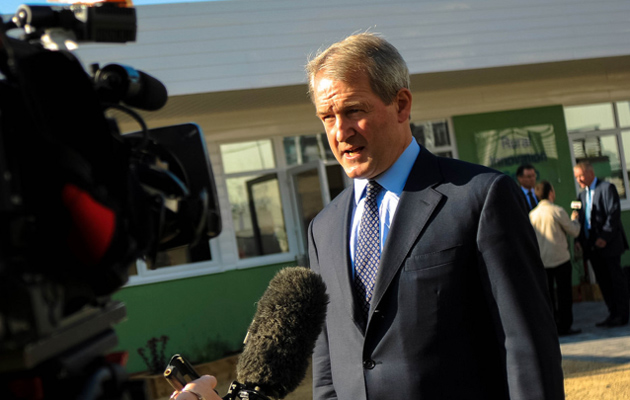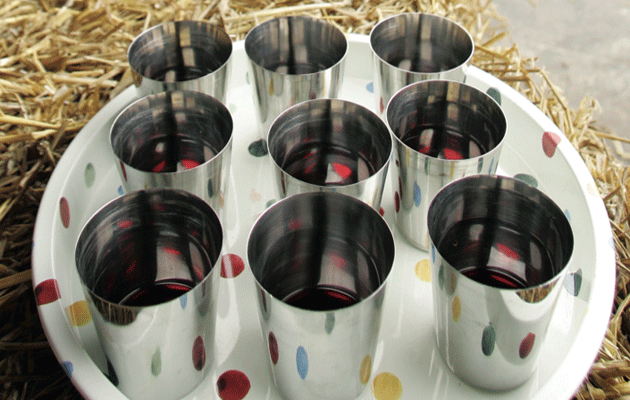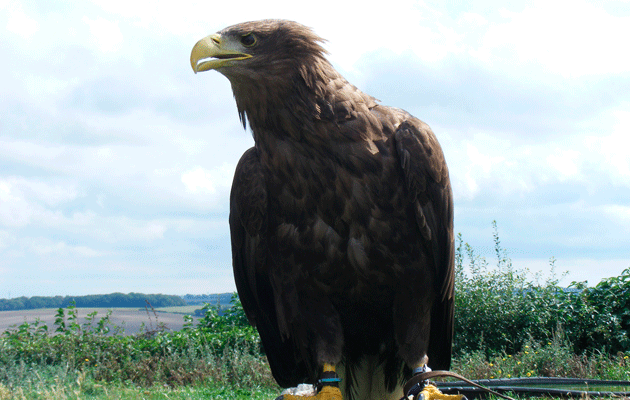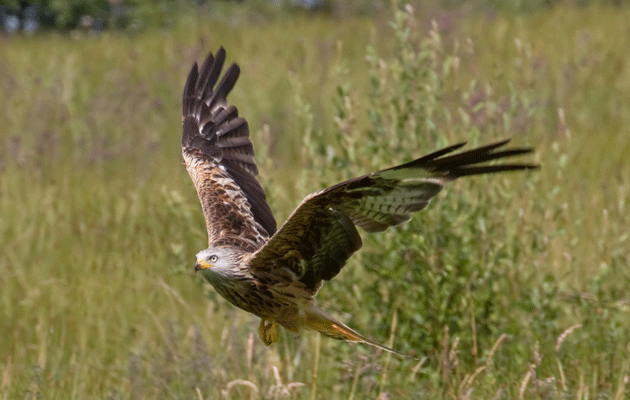Why we should all fear the infection of the growing Green Blob
The Green Blob is not a myth and it's coming to a place near you. writes Alasdair Mitchell

The Green Blob. What a wonderful term. It was used by former Tory environment minister Owen Paterson as a generic term to describe the shapeless mass of “unelected busybodies” comprising the environmental lobby. Not the earnest local conservationists who dig ponds and plant trees, but the huge corporate charities and pressure groups who push the green orthodoxy. Woe betide anybody who has the temerity to express even a batsqueak of dissent on totemic issues such as global warming.
In a scorching denunciation published in The Sunday Telegraph, Mr Paterson highlighted the arrogance, intolerance and hypocrisy of the Green Blob. He condemned “the mutually supportive network of environmental pressure groups, renewable energy companies and some public officials who keep each other well-supplied with lavish funds, scare stories and green tape”.
He wrote that, upon becoming environment minister, “I soon realised that the greens and their industrial and bureaucratic allies are used to getting things their own way. I received more death threats in a few months at DEFRA than I ever did as secretary of state for Northern Ireland. My home address was circulated worldwide with an incitement to trash it; I was burnt in an effigy by Greenpeace as I was recovering from an operation to save my eyesight. But I did not set out to be popular with the lobbyists and I never forgot that they were not the people I was elected to serve.”
Since the article appeared, Greenpeace has vigorously denied that it ever burned an effigy of Mr Paterson, and has been demanding an apology. Personally, I believe Greenpeace’s denial. Given its campaigning stance on global warming, it wouldn’t want to go around lighting unnecessary bonfires, would it? Surely not.
Greenpeace takes a hard line on anything that might contribute to global warming or pollution — just look at its attempts to curb air travel. A month ago it was revealed in The Guardian that one of Greenpeace’s most senior executives, Pascal Husting, had been commuting to work by aircraft several times a month. Well, that caused the organic dung to hit the fan, didn’t it? Each round-trip commute made between his home in Luxembourg and the Greenpeace offices in Amsterdam by Mr Husting would generate an estimated 142kg of carbon dioxide.
But we must be thankful that Greenpeace is an “ethical” organisation that can be trusted with money donated by the public. That’s probably why the pressure group apologised so rapidly after it was revealed (in The Guardian, again) that a member of its finance team had made a mistake that saw the organisation lose a colossal £3million on currency speculation.
Interestingly, money is often at the root of green affairs. In his article, Mr Paterson says that: “The European Commission website reveals that a staggering 150million euros (£119million) was paid to the top nine green NGOs from 2007 to 2013.” He went on to assert that: “European Union officials give generous grants to green groups so they will lobby for regulations that then require large budgets to enforce.”
The BBC is thoroughly infected with The Green Blob. Its green bias was highlighted in a recent report by the BBC Trust, but it continues unabated in the soft, subtle way that only serves to make it all the more effective. Take BBC TV’s recent Countryfile report on shooting, for instance. Presenter Tom Heap didn’t challenge the RSPB’s staggeringly inaccurate claim that grouse moors were being intensively drained. In contrast, however, he repeatedly characterised the independently researched facts in the new Value of Shooting report as mere “claims”. Double standards, or what? The Green Blob is not a myth. And it’s coming to a place near you.








